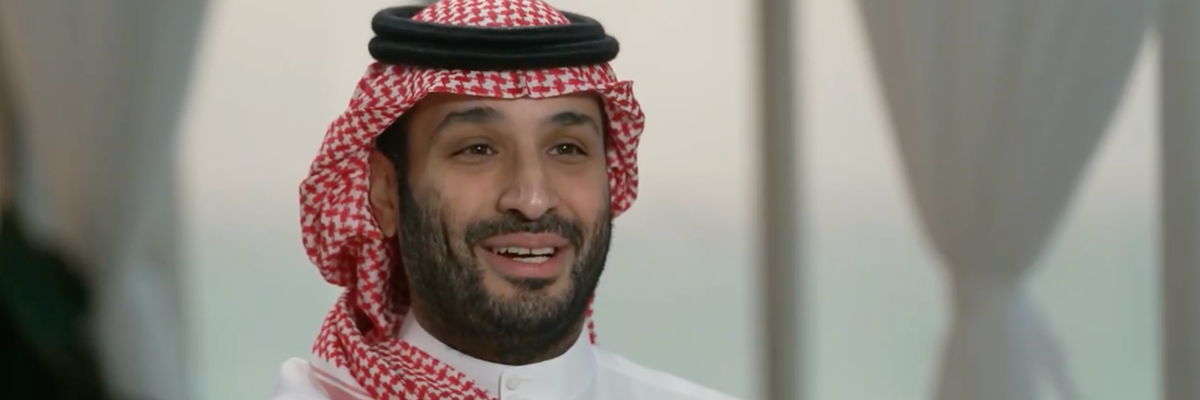Saudi crown prince and de facto ruler Mohammad bin Salman said on Wednesday that a merger between Saudi-owned LIV Golf and the PGA would amount to a monopoly, an admission that could give federal officials ammunition to block it.
During an interview with Fox News’s Brett Baier, MBS blew off charges that his regime is engaged in “sports washing” — or laundering its reputation via professional sports investments — and vowed to continue the practice. “Is sports washing going to increase my GDP by one percent? Then I will continue doing sports washing,” he said. When asked if he was okay with the pejorative term “sports washing,” MBS said, “I don’t care.”
Later, when Baier asked what he thought of LIV Golf possibly merging with the PGA, MBS called it a “gamechanger” and admitted it would become a monopoly.
“You will not have competition,” he said, adding, “and you will have focus on developing the game, and that's good for the players and the fans who love golf.” Watch:
MBS’s admission is a bit ironic, particularly since 11 golfers associated with LIV filed an antitrust lawsuit against the PGA last August. Nearly a year later, the Public Investment Fund of Saudi Arabia — which owns LIV Golf — and the PGA, along with Europe’s DP World Tour, announced that they would not only end their dispute but also join forces.
The Wall Street Journal reported in June that the Justice Department would review that merger over antitrust concerns and that lawyers who specialize in the field said that PGA commissioner Jay Monahan’s statement that the merger would “take the competitor off of the board” could be “potentially problematic.”
Ben Freeman, who directs the Quincy Institute’s Democratizing Foreign Policy program, said you can add MBS’s statement to that list.
“It’s hard to imagine that a comment like that would not catch the eye of Justice Department investigators, whom we know are already investigating this deal on antitrust grounds,” he told RS.
















